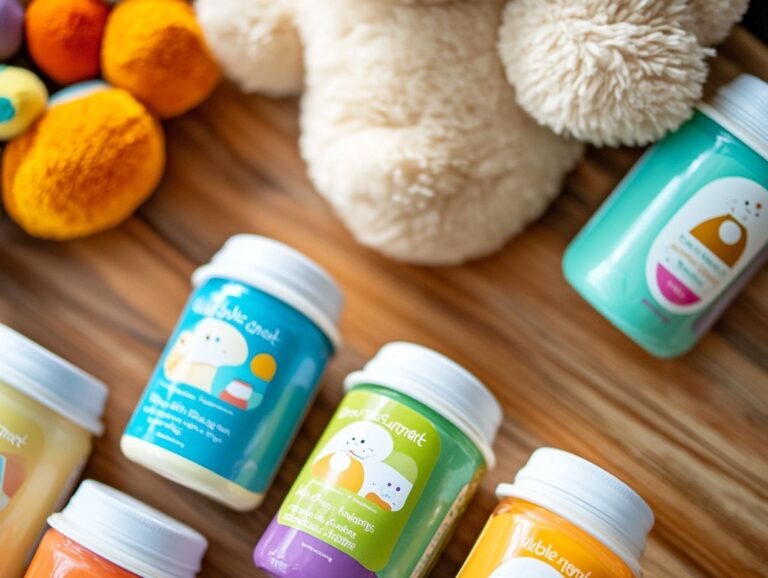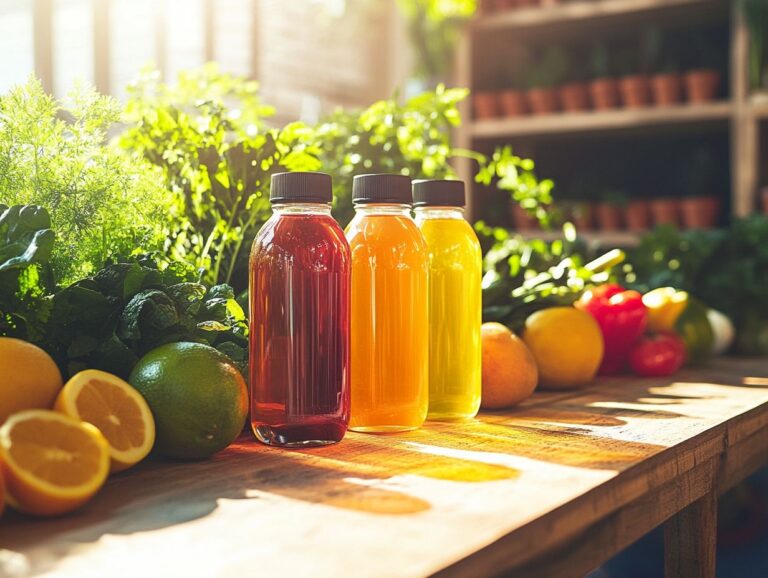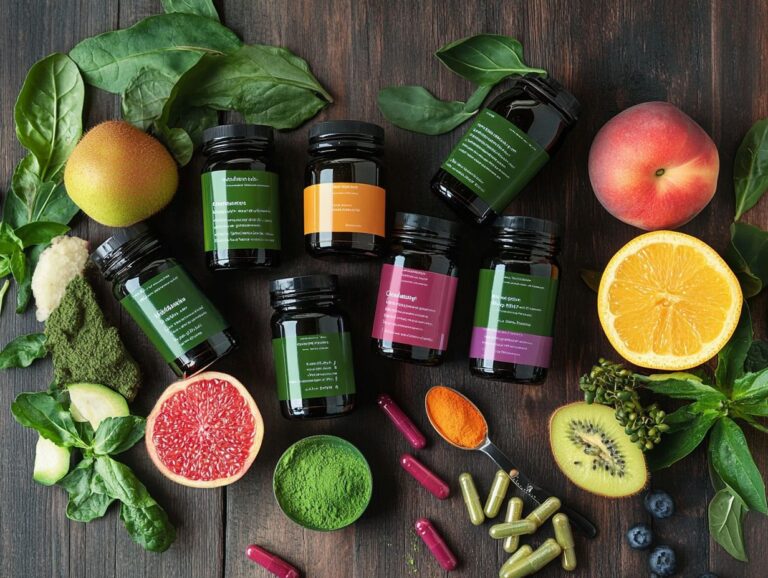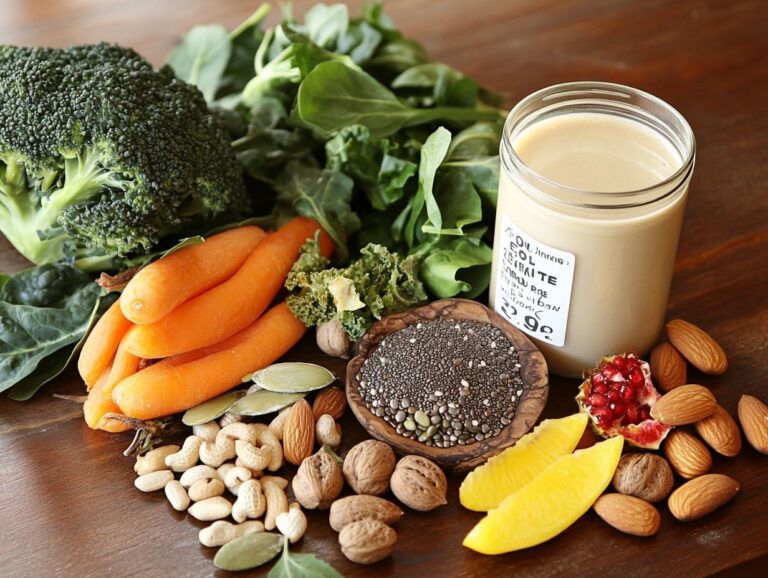Adopting a vegan lifestyle offers numerous health benefits, but it can also pose challenges when it comes to obtaining essential nutrients like vitamin B12, vitamin D, and omega-3 fats.
Many vegans may find it difficult to get adequate amounts of key vitamins and minerals solely from plant-based sources, making supplementation a consideration.
This guide explores why multivitamins can be a valuable addition to a vegan diet, highlighting specific nutrients that are often lacking, such as iron and calcium, and offering tips on what to look for in a quality multivitamin.
Whether you’re new to veganism or a seasoned plant-based eater, understanding these factors can help you maintain optimal health with the guidance of a registered dietitian.
Why Do Vegans Need Multivitamins?
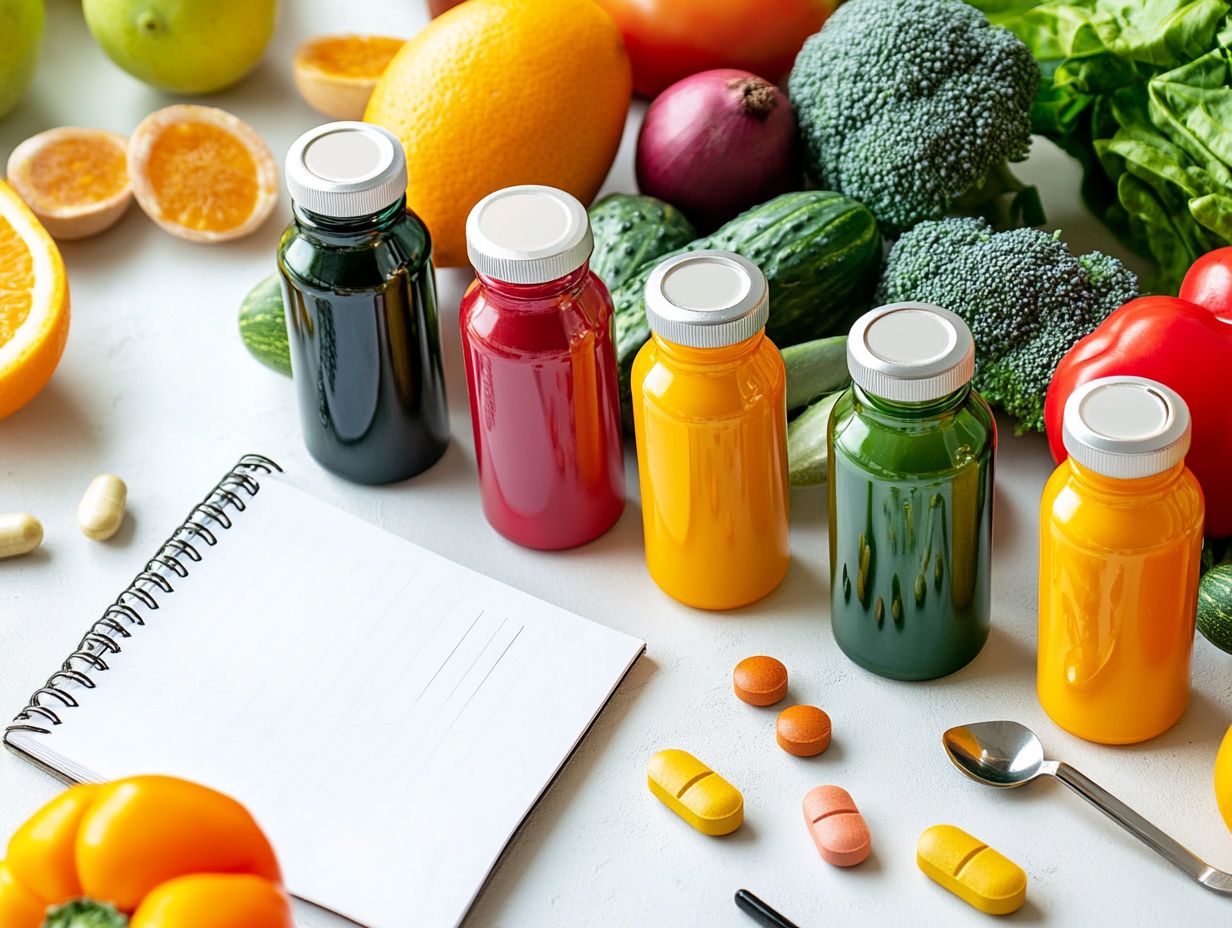
Vegans often encounter unique challenges in meeting their nutritional needs, which can result in deficiencies of essential vitamins and minerals. This issue primarily arises from the exclusion of animal products, which are typically rich in these nutrients.
Therefore, supplementation becomes an important consideration for individuals following a vegan diet. While a well-balanced vegan diet can offer numerous health benefits, careful planning and the potential addition of multivitamins are crucial to ensure that vegans achieve adequate levels of certain key nutrients necessary for optimal health.
What Nutrients Are Hard to Get on a Vegan Diet?
A vegan diet, while rich in plant-based foods, can lead to deficiencies in certain nutrients. It is important for individuals to be aware of the nutrients that may be lacking, such as iodine, zinc, and selenium.
Vitamin B12, which is primarily found in animal products, and omega-3 fatty acids, which are mainly sourced from fish, are two nutrients that can be particularly challenging to obtain in sufficient amounts on a purely vegan diet. Other nutrients, such as iron, calcium, iodine, zinc, selenium, vitamins D, folate, and choline, may also be difficult to acquire without careful planning and/or supplementation.
Among these nutrients, zinc and selenium are often regarded as secondary concerns. Zinc plays a vital role in immune function, protein synthesis, and the structure and function of cell membranes, while selenium is essential for thyroid hormone metabolism and antioxidant defense.
Zinc can be found in legumes, seeds, and nuts, but its bioavailability is typically lower compared to that of animal sources. Selenium is abundant in Brazil nuts and whole grains.
Additionally, choline, which is important for brain development and metabolism, is often deficient in vegan diets; it can be sourced from soybeans and quinoa.
To address these potential deficiencies, it is recommended that vegans consume a wide variety of nutrient-dense foods, such as whole foods rich in antioxidants, and consider taking supplements if necessary, including individual supplements like vegan protein powders.
How Can a Multivitamin Help Fill Nutritional Gaps?
Multivitamins can be an essential tool for vegans to help address the nutritional deficiencies often associated with a plant-based diet and to ensure they receive the essential nutrients needed for optimal health.
These supplements provide a convenient and concentrated source of vitamins and minerals, assisting with nutrient absorption and potentially reducing the risk of health issues resulting from nutrient deficiencies. This is particularly important for individuals whose dietary choices limit their intake of certain nutrient-rich foods, such as those recommended by a registered dietitian.
The quality of supplements is crucial, as high-quality multivitamins can enhance the bioavailability of nutrients, allowing the body to absorb and utilize them more effectively. For instance, specific multivitamin formulations can cater to individuals with unique health needs, such as pregnant women who have higher requirements for folate and iron.
These formulations help vegans maintain adequate levels of key nutrients, including vitamin B12, iodine, and omega-3 fatty acids, which can be challenging to obtain in sufficient quantities from plant sources alone.
By using broad-spectrum multivitamins, individuals can better meet their overall health goals and dietary requirements at various stages of life, including during pregnancy and for vegan children, ensuring family-friendly nutrient density.
What to Look for in a Vegan Multivitamin?
When selecting vegan multivitamins, it is essential to choose carefully to ensure individuals receive the right nutrients, such as those recommended by ConsumerLab and The Vegan Society, and that the product aligns with dietary guidelines for a healthy diet.
High-quality supplements should provide a broad spectrum of nutrients that might be lacking in a vegan diet, including essential nutrients such as:
- vitamin B12
- vitamin D
- iron
- calcium
- omega-3 fatty acids
- other essential nutrients
A thorough review of the ingredients and nutritional profile can help individuals make informed choices that support a health-conscious lifestyle.
1. Vitamin B12
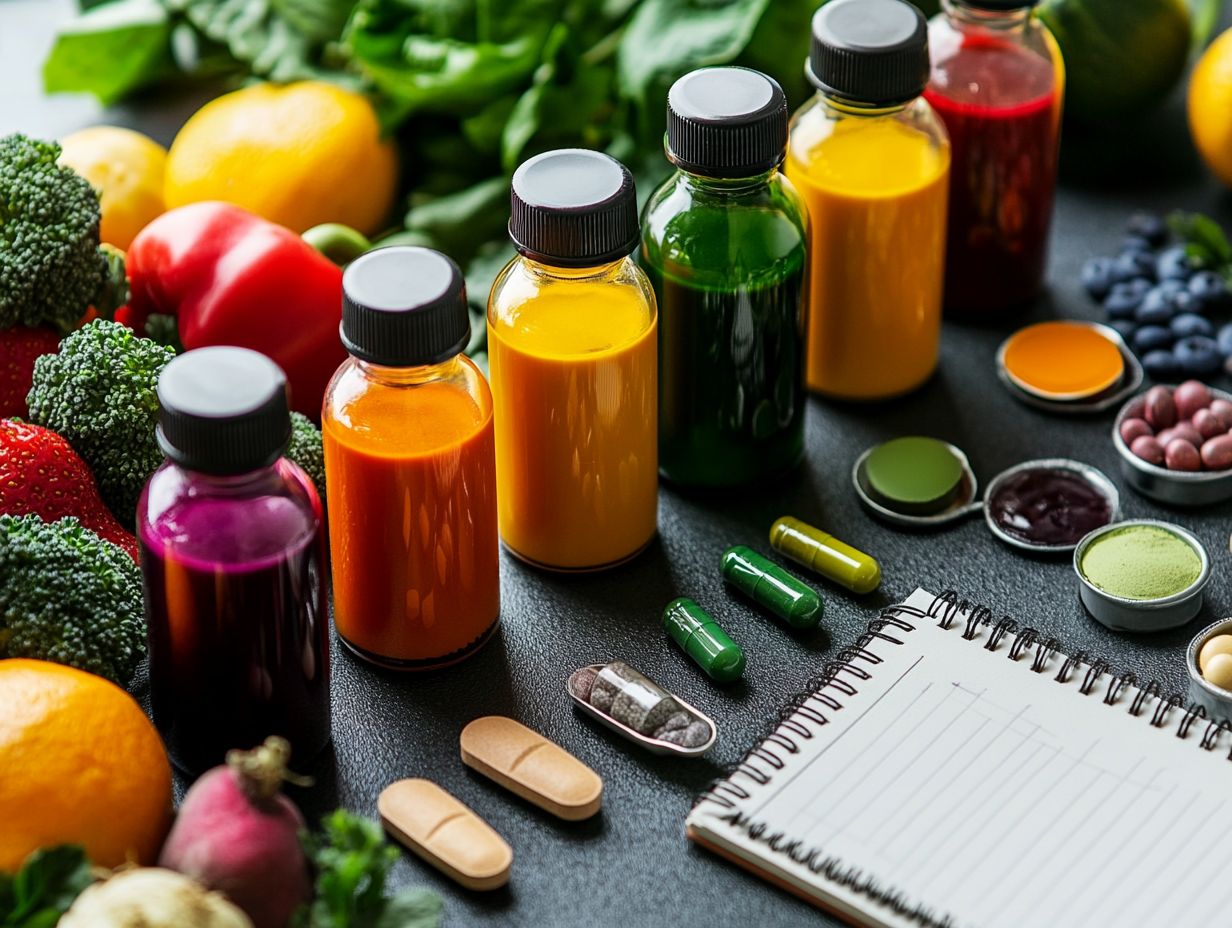
Vitamin B12 is one of the most critical nutrients for vegans, as it is primarily found in animal products, making supplementation essential to prevent deficiencies. This nutrient plays a vital role in nerve function, red blood cell formation, and DNA synthesis, with products like Solgar and Veg 1 offering trusted vitamin sources.
A deficiency in vitamin B12 can lead to serious health issues, including anemia and neurological disorders. Therefore, vegans must seek reliable sources to maintain their B12 levels, which may include fortified foods, B12 injections, or sublingual tablets.
Each of these forms offers distinct benefits; for instance, injections can provide rapid absorption for individuals with absorption issues, while sublingual tablets are convenient for daily use, ensuring a well-balanced diet.
When selecting vegan multivitamins, it is important to choose products that specifically list a high-quality, bioavailable form of B12, such as methylcobalamin, on the label. Reading supplement reviews and checking for third-party testing can help ensure that the chosen supplement meets ethical and nutritional standards, providing peace of mind and supporting optimal health.
2. Iron
Iron is another essential nutrient that can be challenging to obtain in adequate amounts on a vegan diet, particularly due to the lower bioavailability of plant-based iron compared to heme iron found in animal products. Vegans should pay close attention to their iron intake, as a deficiency can lead to fatigue, decreased immunity, and impaired cognitive function, and should consider consulting with a registered dietitian for advice on iron supplementation.
To address this challenge, it is important to understand the different forms of iron: heme iron, which is found in animal products, and non-heme iron, which is predominantly found in plant foods. Although non-heme iron is less bioavailable, its absorption can be enhanced by including foods rich in vitamin C in meals, as vitamin C significantly improves non-heme iron absorption.
Incorporating foods such as legumes, quinoa, fortified cereals, and dark leafy greens can help vegans meet their iron requirements. Additionally, specific vegan multivitamins containing chelated forms of iron can help prevent deficiencies and promote overall wellness.
3. Calcium
Calcium is an essential mineral for maintaining healthy bones, and it can be challenging for vegans to obtain sufficient amounts from diets that do not include dairy products. A lack of adequate calcium increases the likelihood of developing osteoporosis and experiencing bone fractures in the future, and dietary choices should include high-calcium vegan foods as well as supplements.
Therefore, it is crucial to incorporate plant sources that are high in calcium to fill this nutritional gap. Fortified plant milks, such as almond, soy, and oat milk, often contain calcium levels comparable to those found in dairy, supporting plant-based nutrition goals.
- Leafy greens like kale, bok choy, and collard greens are also excellent sources of calcium.
- Additionally, tofu can serve as a rich source of calcium, particularly when it is prepared with calcium sulfate.
Despite these dietary options, many individuals may still find it challenging to meet the recommended intake of calcium. Consequently, calcium supplementation should be considered for those adhering to a vegan diet.
A vegan multivitamin can be an effective supplement to enhance calcium intake, which is vital for bone health and to prevent potential deficiencies.
4. Vitamin D
Vitamin D, often referred to as the sunshine vitamin, plays a crucial role in bone health and immune function. However, obtaining sufficient amounts can be challenging for vegans, particularly in areas with limited sunlight, and vegan multivitamins containing vitamin D are often necessary.
Since most natural sources of vitamin D are animal-based, vegans should rely on fortified foods and supplements to meet their needs.
Vitamin D exists in two primary forms: D2 (ergocalciferol), which is derived from yeast and fungi, and D3 (cholecalciferol), which comes from animal products. Studies have shown that D3 is more effective than D2 at raising and maintaining overall vitamin D levels in the body.
Therefore, vegans seeking to increase their intake of this essential nutrient should consider vegan multivitamins that contain either D2 or specially formulated D3 alternatives sourced from lichen.
Garden of Life and Deva Nutrition are two reputable brands that offer high-quality vegan vitamin D supplements, with options like Vitashine and Nordic Naturals also available for those seeking the best vegan multivitamins.
5. Omega-3 Fatty Acids
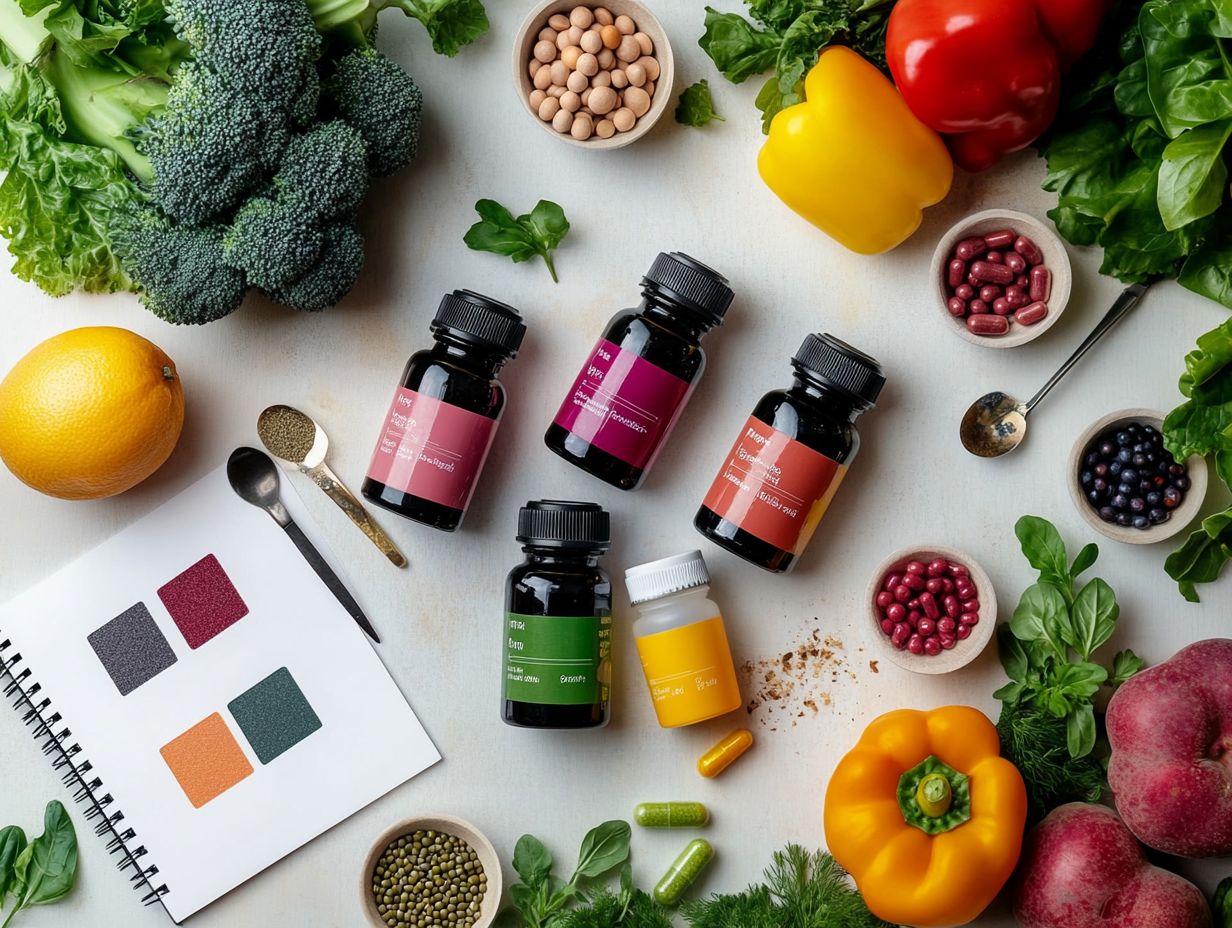
Omega-3 fatty acids, particularly DHA and EPA, are essential for maintaining heart and brain health. However, obtaining these crucial fats can be challenging for those following a vegan diet. While flaxseeds and chia seeds provide ALA, the body’s conversion of ALA to EPA and DHA is inefficient. Therefore, it is important for vegans to consider supplements derived from algae, like those offered by Amala Vegan Omega 3, which provide a direct source of DHA and EPA.
This ensures that individuals, especially those in vegan families, can effectively meet their nutritional needs, supporting a health-conscious lifestyle and optimal health effects.
For children, adequate omega-3 intake is linked to optimal brain development and cognitive function, while pregnant individuals benefit from these fatty acids to support fetal growth and development.
The use of algae-based supplements allows those adhering to a plant-based lifestyle to reap the significant health advantages that omega-3 fats provide, including improved mood and reduced inflammation. Incorporating these supplements, such as Amala Vegan Omega 3, can enhance overall well-being and ensure that both parents and their children, including vegan children, thrive nutritionally. This approach aligns with the dietary guidelines set forth by the Vegan Society and supports a well-balanced diet.
6. Zinc
Zinc is an essential trace mineral that plays a vital role in immune function, protein synthesis, and DNA synthesis. However, it is often deficient in vegan diets due to its abundance in animal products. A lack of adequate zinc intake can result in an impaired immune response and delayed wound healing. For vegans, incorporating nutrient-rich whole food sources of zinc is crucial to avoid nutrient deficiencies.
For those adhering to a plant-based lifestyle, it is essential to identify effective plant sources of zinc, such as legumes, seeds, nuts, and whole grains, to help bridge the nutritional gap. The bioavailability of zinc in these plant sources may be lower because of phytates, which inhibit absorption.
Therefore, considering zinc supplementation is crucial for vegans, particularly for individuals who may find it challenging to meet their nutrient needs through diet alone. A well-formulated vegan multivitamin, such as Veg 1 or Solgar, can assist in effortlessly fulfilling zinc requirements, ensuring that overall health, energy levels, and bodily functions remain optimal without compromising dietary choices. Consulting with a registered dietitian can provide personalized guidance to achieve this balance.
7. Iodine
Iodine is an essential nutrient for thyroid function and metabolism, but obtaining sufficient iodine can be challenging for vegans, particularly if they do not include iodized salt or sea vegetables in their diets. A deficiency in iodine can lead to thyroid-related issues such as goiter and hypothyroidism. Using iodine supplements or vegan multivitamins can help prevent these health effects.
To ensure that individuals following a plant-based diet receive adequate iodine, it is crucial to deliberately incorporate iodine-rich foods, as traditional sources like dairy and certain meats are not options. Iodine can be found in iodized salt, which is a simple addition to most meals, and in various seaweeds, such as nori or kelp, which can be included in recipes.
For those who may struggle to meet their iodine requirements through food alone, vegan multivitamins can be vital for maintaining sufficient iodine levels and preventing deficiency. Iodine supplementation is especially important for pregnant or breastfeeding individuals, as adequate iodine levels are crucial for fetal development.
Are There Any Potential Side Effects of Taking a Multivitamin?
Multivitamins offer a variety of health benefits; however, users should also consider their potential side effects to ensure safer supplementation. Engaging with supplement reviews, such as those on ConsumerLab, can provide insights into the best vegan multivitamins available and their potential health effects.
Some individuals may experience mild gastrointestinal discomfort, such as an upset stomach and nausea, especially when high doses of certain nutrients are taken without sufficient food. Ensuring nutrient absorption by adhering to dietary guidelines can minimize these issues, making supplementation more health-conscious and family-friendly.
1. Upset Stomach

An upset stomach is one of the most commonly reported side effects of multivitamins, particularly when they contain iron or are taken on an empty stomach. This side effect can discourage some individuals from taking their multivitamins consistently.
To address this issue, several effective measures can be implemented. For instance, taking multivitamins with food not only helps prevent gastric irritation but also aids in nutrient absorption. Additionally, using specially formulated supplements that are gentle on the stomach can significantly benefit those with sensitive stomachs. Opting for supplements containing vitamin B12 and vitamin D can further enhance digestion and overall nutrient density.
Opting for liquid or chewable vitamin forms may also alleviate discomfort, as these alternatives are typically easier on the stomach, making it easier to maintain a healthy regimen.
2. Allergic Reactions
Allergic reactions to multivitamins can occur in some individuals. Common allergic responses may stem from fillers, binders, or the vitamins themselves. It is essential for consumers to read labels carefully and be aware of any allergies they may have. Consulting with a dietitian or healthcare provider can help tailor a supplement regimen that minimizes the risk of allergies.
Allergic reactions can vary in severity, ranging from mild symptoms like skin rashes or itching to severe manifestations such as difficulty breathing or swelling of the face and throat. If any of these symptoms arise after taking a supplement, it is crucial to stop using the supplement immediately and seek medical assistance if the symptoms worsen.
Plus careful label reading, selecting high-quality supplements that are specifically labeled as free from common allergens such as gluten, dairy, or soy can further reduce the risk of unwanted reactions.
Consulting with a healthcare professional before starting any new supplement regimen is always advisable, especially for individuals with a history of allergic reactions.
3. Overdose of Certain Nutrients
It is possible to overdose on certain nutrients if individuals take multiple supplements simultaneously or consume a multivitamin that contains high doses of specific nutrients without a doctor’s recommendation. Working with a registered dietitian can help mitigate this risk and ensure that supplementation aligns with one’s health needs.
Such overdosing can lead to toxicity and adverse health effects, particularly with fat-soluble vitamins A, D, E, and K. While water-soluble vitamins can also be harmful in high doses, examples such as B6 and C may cause nerve damage or gastrointestinal issues, respectively.
To prevent overdose, it is crucial for anyone taking supplements to adhere to the recommended daily allowance and not exceed this guideline based on anecdotal or trendy health information. Seeking the guidance of a registered dietitian or healthcare provider is advisable, as they can help tailor multivitamin and mineral intake to an individual’s specific health needs and conditions.
This approach ensures that people can enjoy the benefits of supplementation without the associated negative side effects, promoting optimal wellness.
How to Choose the Best Multivitamin for Your Needs?
Selecting the right multivitamin for an individual involves careful consideration of various factors, including ingredient quality, nutrient content, and alignment with personal dietary preferences. Reviewing products like Nordic Naturals and Vitashine can help identify supplements that meet individual needs.
With numerous multivitamin options available in the marketplace, consumers should prioritize high-quality supplements that meet their specific health needs and lifestyle choices. This approach ensures they receive adequate nutrients for optimal health.
1. Check the Ingredients List
The ingredients list of a multivitamin allows consumers to verify whether it contains the specific nutrients they seek, such as choline and calcium, and whether it includes any unwanted additives or allergens. By ensuring that the ingredients list is clear and easily accessible, consumers can make informed decisions and are more likely to select high-quality supplements that align with their health needs.
It is essential to look for specific forms of vitamins and minerals in a multivitamin, as the form can significantly influence absorption and effectiveness. For instance, methylcobalamin is the preferred form of vitamin B12 due to its superior bioavailability compared to cyanocobalamin.
Moreover, vigilant shoppers should be cautious of fillers or synthetic additives that may diminish the supplement’s effectiveness or trigger sensitivities. Choosing brands that provide transparent and comprehensive information about their formulations fosters trust and can lead to enhanced health benefits.
This approach enables individuals to ensure that they are selecting products that adequately meet their nutritional requirements.
2. Consider Your Diet and Lifestyle
The best multivitamin for you depends on your individual diet and lifestyle, as these factors significantly influence your nutrient requirements. A thorough evaluation of your dietary habits can help identify a multivitamin that effectively compensates for any missing nutrients, such as DHA, EPA, and other essential nutrients important for vegan protein synthesis.
As people age, their needs for key vitamins and minerals can change dramatically. For instance, a younger person with an active lifestyle may require higher amounts of certain nutrients to support energy expenditure and muscle recovery, while an older adult may need to focus more on nutrients that promote bone health and cognitive function.
Additionally, pre-existing health issues can further tailor these nutritional needs, meaning that what works best for one person may not be suitable for another. Therefore, it is essential to consider your age, activity levels, and any health conditions when determining which multivitamin is right for you.
3. Read Reviews and Compare Brands
Reading reviews and comparing brands is an effective approach for consumers seeking the best multivitamin to support their vegan lifestyle, as it provides insights into the effectiveness and quality of various products.
Customer feedback and expert reviews can guide individuals in identifying reputable brands that offer high-quality supplements tailored to meet vegan nutrient requirements. Utilizing trustworthy sources for supplement reviews, such as ConsumerLab, can significantly enhance this process by providing insights into the nutrient density and bioavailability of options like Alina Petre.
These platforms conduct thorough evaluations of multivitamin options, offering consumers an in-depth look at essential factors such as ingredient quality, pricing, and availability. They often present average customer satisfaction ratings, which can act as an informal quality control measure. This information is vital for understanding the potential health benefits and nutrient absorption efficiency provided by different multivitamins.
When evaluating different multivitamins, it is crucial to consider these factors, as they can influence not only the efficacy of the supplements but also their overall value and accessibility for those following a vegan lifestyle.
